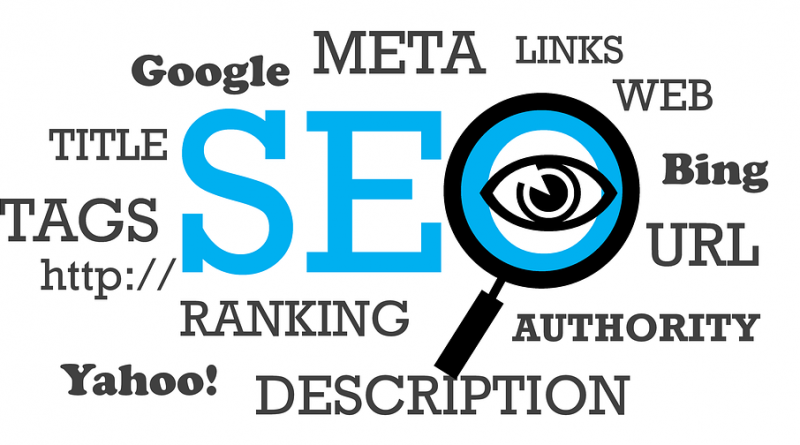Hi Are you looking for over optimization penalty, over optimization definition, over optimization checker, anchor text over optimization penalty, seo recommendations, text seo, seo content, over optimized anchor text if yes you are on right page
Dangers of overdoing SEO optimization
It’s only right to start off with the definition of what SEO really is. SEO in itself is not a word as you might think. SEO is the abbreviation for three capital words in web development. SEO stands for Search Engine Optimisation, which means that SEO needs you to have something up and running that you need to optimise since optimising is simply making something better.
When you Google something, say “how to live long”, how do you think Google does order the search results so that there are some in the top pages while there are actually millions of results? Do you think it’s random? Or you think those that always feature top have corrupted Google somehow so that their pages are always shown first in the results?
It is only fair to let you know that search engine optimisation is some kind of a competition. Those who do it right will always be top in the search results. This has to say that if you want to be top of the search results in your relevant field of information that you provide, then you have to follow some sort of mechanism. A winning mechanism that is.
This winning mechanism is the one that is referred to as search engine optimisation or SEO is shorter terms. Optimising your website or blog for search engines is just about the top prize winning thing you can do to give yourself a top rating and have to “nice-to-blow-your-own-trumpet” kind of reputation. When done right that is. I mean, in as much as you can do to in order to be that kind of top site in your field, you can also do it wrong such that you are in the bottom pages, or worse still, overdo it. I mean, if you are the number one site in your field, there is the possibility of becoming number zero (black listed) as well as number -1 and further down.
This is why overdoing your SEO optimisation could be the killer thing to your website or blog. The old adage, “too much of anything is poisonous,” is just too true. Anything past the recommended search engine optimisation is indeed dangerous.But unfortunately, there is nowhere to find the recommended kind of search engine optimisation. It all depends on the website or blog itself and the kind of content it has.
Overdoing search engine optimisation is a nightmare you don’t want to experience any time in your life. You do not want to be rated last in the search results because you did too much of search engine optimisation. You’d rather be last for not doing it at all. Not to talk about anything reputation-like, but really, doing the SEO isn’t something easy. It costs time if not money. And time isn’t something you want to waste just like that.
Listed below are some of the ways in which overdoing SEO could kill your website or blog, if not render it to generate zero organic traffic.
Eventually, you will lose your traffic
Absolutely not! You will not lose your traffic. However, the traffic you get will be highly useless to you. I mean, if you set your mind to earn something from your website, what your traffic does on your website is what defines if you are going to make any significant thing from your website, if any at all. Overdoing SEO comes in the range of doing every possible thing to optimise SEO just in one page. Let’s take a sample:
Title: Example.com keyword keyword keyword keyword | keyword keyword kwyword keyword.
Meta description: Keyword keyword keyword keyword keyword
Meta keywords: keyword keyword, keyword, keyword keyword keyword, keyword ×
n times.
Some elements on page: <h1>Keyword keyword keyword keyword</h1><h2>keyword keyword</h2>
<p>keyword <a href=”some-unknown-site.com/keyword/keyword”>Keyword</a><a href=”some-unknown-site-2.com/keyword/keyword”>Keyword</a><a href=”some-unknown-site-3.com/keyword/keyword”>Keyword</a><a href=”some-unknown-site-2-again.com/keyword/keyword”>Keyword</a>keyword</p>
<p> keyword keyword keyword</p>
This is just a good example of keyword stuffing. From a URL full of keywords to just everything keyword to keyword to keyword. Now, before we go into discussing anything about such a page, let’s get down to analysing an ideal scenario when such a page is set up. What are the likely happenings?
WEEK 1: The page’s traffic improve drastically. The organic traffic to it is at least quadrupled. You also notice that people are staying less on the page, but that does not worry you too much since people seem to be benefiting from it. You add more keywords to the page and this seems to work as more organic traffic is targeted at your site. This makes you happy.
WEEK 2: Organic traffic is now coming at your page at such a high rate that you think of optimising all your other pages to the likes of that particular page. You embark on optimising other pages on your website. As supposed, this should lead to an overall quadrupling of organic traffic to your website. Indeed, traffic increases to your website miraculously. You say you finally found the key to generating unpaid for traffic to your website. Yay!
WEEK 3: Your traffic is doing great, though people do not spend much time on your website. You also notice most visitors to your website are unique visitors. You begin looking for ways to improve traffic to your website and begin adding more keywords to your pages. Unfortunately, you begin noticing some weird trends in some of your pages.
Some of the pages in your website begin to experience organic traffic at a standstill. Traffic drastically drops from the high figures to something unimaginable. You begin wondering what could be wrong with them. You analyse this for a while then more pages begin following the same trend. This brings your organic traffic technique to question. What could be happening?
You struggle on to try to fix this to no avail. Some of your pages are still doing great, which is why you struggle hoping that you could reverse the situation.
WEEK 4 – WEEK 12: Your struggles increase but at some point you realise that your struggles are never going to bear fruit. It’s just clear that something is not adding up with the way your site is receiving traffic that stays for just a while and leaves. With time, your trials lessen and lessen until you eventually give up. Your site receives that kind of terribly distributed traffic until some point that no organic traffic gets to your site while there is really little you can do about it.
When all is said and done, it will be truly hard to blame such a person who did the thing above for taking his own site to its downfall. After all, he was only doing the right thing that every SEO experts preach, right?
The scenario described above is a perfect show for what happens in reality to most websites that lost their SEO fame. But why does it happen that way? What is wrong with such a site? Or are all sites doom to follow the same trend and just a few happen to escape this fate? Let’s check it out:
1. Too much of anything is poisonous
This is true in every scenario in the above case. The intention of the SEO preacher who taught you was to make you have keywords well distributed on your page but not to make you convert your whole page into a keyword hive. Keywords are supposed to be there to nourish your content rather than being the content itself.
Keyword stuffing kills your site in this way. You will start focussing on the keywords rather than what the users want. This is why users spend very minimal time on your website or blog because you make the feel like they went over to your site to check out the ads placed there or just some keyword marketing website who give keyword suggestions to their visitors.
This is why you must not give a chance to keyword stuffing. There is a way in which you can make your content rich in keywords other than overdoing it. Having a single keyword in every hundred words of content that goes in naturally is just great. If the keyword does not fit in, it is only wise to keep it from ruining your content.
Also, your site is not a link bait. Yes, it is good to host some external links, but again, too many of them makes it seem a little fishy. Why would you sell someone else’s content more than your own? Personally, I find this a little awkward, and so do the search engines and everyone else that you’d like to view your content, which takes us over to our next point…
2. Search engines won’t like you anymore
The search engines got amazed by your rich collection of relevant keywords to the search terms entered for the search that takes visitors to your website. They would rank you among the first since you seem to have a better larger content than everyone else in that field. This is why you’d see a shoot up in the amount of organic traffic you’ll get to your website or page.
Eventually, the search engine would realise you just stuffed keyword to your pages without anything to back it up by the way the users react to it, the amount of time they take viewing your website and many other factors. You’d be seen as fooling the users as well as the search engines themselves. This is why they won’t take your lies any further.
They would black list your pages (some of them) while others simply disregard anything that is preceded by your domain name. You will notice the sudden decline of organic traffic was due to this factor. Instead of seeing your pages as rich in keywords, they begin seeing your pages as stuffed in keywords and would rather not take their users to a website that has nothing but just a vast collection of keywords.
The process of reversing this will not be easy. You may have to scrap off everything in that page in order to make it look like you really did something to that thing that the search engines didn’t like about it, then deleting your website from the search engines’ blacklists and then adhering to the right practices. In short, you will have to start over from zero. Sucks.
3. You should have content, not keywords, to show
And that’s where you pissed off both the search engine and the user that visited your website. You need to have content that you are having keywords for. You do not create content for keywords. You create keywords for content. Naturally.
If I were to get out of the way a bit, I would give you this analogy. If you are a guy and you spot a beautiful lady somewhere, if you really want here. You’d approach her, right? But supposed you approached here, then the first thing that hits you is smell of sweat, then terrible breath comes out of her mouth when she speaks, and to add to it, she replies your greeting with a rude insult. Are you sure you’d get on with the vibe?
Which is the same thing that happens when you overdo your SEO. It would seem so great to see some very relevant result in the search engines’ results sets. But supposed you click that link and all you find is just the URL to that page repeated all over the page in all directions. You’d obviously be pissed off at this. You hadn’t gone onto that page just to check out other keywords one could use to find the content the person was looking for.
You need to provide the content that the person was looking for with a first priority before going out of your way to make whatever it is to be search engine friendly. Make sure you have delivered the actual thing before everything else.
To sum it all up
Always now that you didn’t build your site so that you can optimise it for search engines. You built it to provide a service. Concentrate on that first before you bring up anything else. And that’s the magic that the top sites use to get to that position and retain it.



